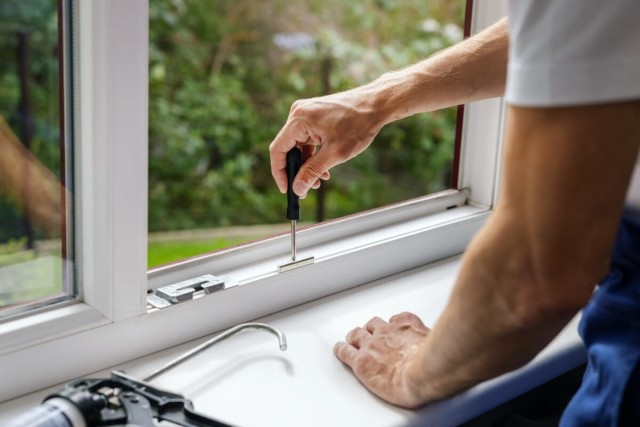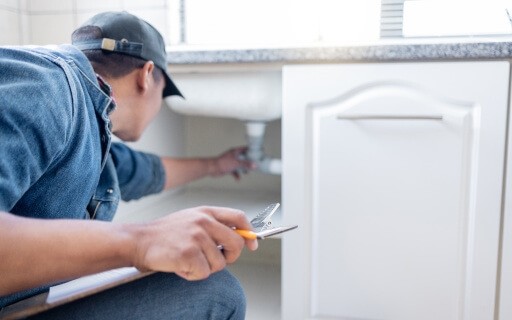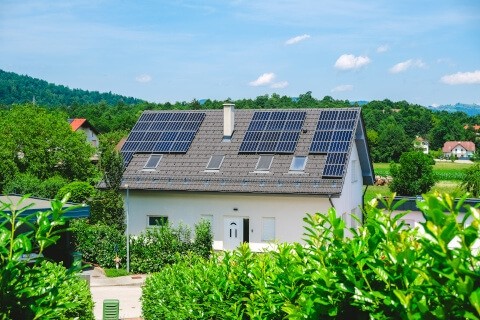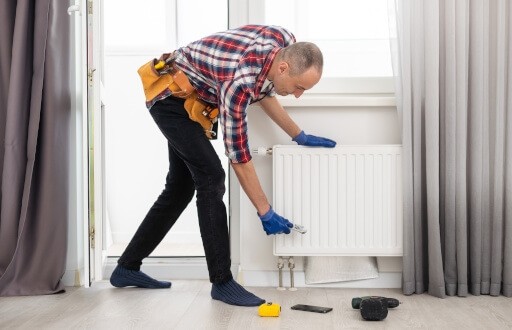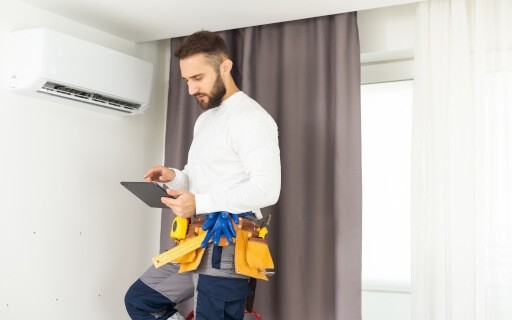Similar to making other decisions as a landlord, it’s important to do your research before purchasing appliances. Is it best to splurge on the stainless-steel refrigerator that will attract the eye of renters or would it be better to purchase an inexpensive refrigerator? How long should refrigerators, furnaces, air conditioners, and other appliances last?
Appliance Service Lives Vary
Most appliances will last between eight to 10 years, but some will last much longer. New appliances will typically offer a three-month to a one-year warranty. Manufacturers also sell warranties that run from three to five years. Although you might not want to spend those extra dollars, paying for the warranty along with the appliance could save you money later in case something breaks or malfunctions.
The thermostat and the furnace are some of the longest lasting appliances. A thermostat usually lasts for 35 years while a furnace typically lasts 15 to 20 years, depending on the type of fuel it uses. As a rule of thumb, gas appliances tend to last a bit longer than electric appliances.
Below is a table of life expectancy for most appliances to help you get an idea of what to expect so you make the best financial decision when equipping your rental property.
| Appliance | Average Life Expectancy in Years |
| Air Conditioners (room) | 10 |
| Air Conditioners (central) | 15 |
| Boilers (electric) | 13 |
| Boilers (gas) | 21 |
| Compactors | 6 |
| Dehumidifiers | 8 |
| Dishwashers | 9 |
| Dryers (electric and gas) | 13 |
| Freezers | 11 |
| Furnaces (electric warm air) | 15 |
| Furnaces (gas warm air) | 18 |
| Furnaces (oil warm air) | 20 |
| Garbage disposals | 12 |
| Humidifiers | 8 |
| Microwave Ovens | 9 |
| Range/Oven Hoods | 14 |
| Ranges (electric) | 13 |
| Ranges (gas) | 15 |
| Refrigerators | 13 |
| Refrigerators (compact) | 9 |
| Thermostats | 35 |
| Trash Compactors | 6 |
| Washing Machines | 10 |
| Water Heaters (electric) | 11 |
| Water Heaters (gas) | 10 |
| Water Heaters (tankless) | 20+ |
Avoid Purchasing Trash Compactors
Trash compactors have the shortest lifespan of any appliance, so it might be best to avoid purchasing one unless you want to provide your tenants with an additional amenity. If you already own a rental property that has a trash compactor installed, consider removing it and replacing it with a cabinet to add extra storage space. Tenants will appreciate the extra storage space in the kitchen, and you won’t have to worry about replacing the trash compactor every few years. You’ll save time and money while also attracting more potential tenants.
Opt for a Full-Size Refrigerator Instead of a Compact Fridge
Purchasing a compact refrigerator might seem like a way to save money at first, but in reality it’s the opposite. Full-size fridges last longer and typically use less energy. If you’re in charge of paying for utilities, buying a full-size fridge will help you save money. If your rental property only has a kitchenette, a compact fridge might be your only option, but if space allows, opt for a full-size refrigerator. A full-size fridge in a kitchenette could act as another selling point.
Understand Appliances Will Inevitably Break or Malfunction
No appliance is perfect, and they are bound to eventually break or malfunction. Washers, dryers, dishwashers, and refrigerators are filled with smaller parts that could fail at some point. In these situations, a smaller part could mean a simple fix or replacing the entire appliance altogether. This is why investing in a warranty is so important! Should an appliance malfunction while a tenant is living in your rental, make sure to provide an easy way for them to submit maintenance requests. With Apartments.com, you'll get notified when a request is submitted, and you can update your renter as repairs progress.
Perform Regular Tune-Ups
Practicing routine maintenance can help minimize the chance of appliances breaking or malfunctioning. Similar to cars, certain appliances like washing machines, dryers, and furnaces will need a tune-up every now and then. If appliances aren’t properly maintained, they could suffer damage faster. For example, if the heating system isn’t maintained, a fire can break out. Here’s an example of a brief maintenance checklist for landlords:
-
Clean or replace the furnace filters each year. Dirty filters cause the furnace blower to work harder, leading the furnace to wear out prematurely.
-
Check the gaskets on the dishwasher, refrigerator, and freezer. Worn gaskets can increase the temperature in the refrigerator and freezer, causing the condenser to work harder. Worn gaskets in a dishwasher can lead to leaks.
-
Clean the refrigerator coils each year. Dust buildup on the coils overheats the condenser motor, causing poor performance and premature failure.
-
Re-level the washing machine occasionally. Washing machines move around during the spin cycle and might go off level. When this happens, the motor and belts wear out quickly because the agitator must work harder.
-
Clean the dryer vents twice a year. Lint buildup in the dryer overheats the motor, which causes the machine to take longer to dry clothing. Lint buildup can also cause a fire.
Only Purchase Appliances from Reliable Brands
Along with proper maintenance, doing your research before buying an appliance will help you save money in the long run. Research which brands are reliable, efficient, and offer the best value online as opposed to simply picking the most expensive or cheapest appliance. You can also visit a local home improvement store or reach out to local appliance professionals for recommendations and questions. You can also ask an appliance professional about proper maintenance.
Learn How to Repair Your Appliances or Hire a Professional
As a landord, you’ll be responsible for repairing appliances if you provide them to your tenants. Learning how to fix certain appliances can help save you money. With a manual, toolbox, a YouTube video, and some patience, a landlord can learn to repair an appliance. However, don’t hesitate to hire a professional if you aren’t handy. Whether you hire a professional or go DIY, repairing an appliance could give you an extra three to five years of use.
Like many decisions as a landlord, purchasing appliances requires some research. Educating yourself about the average service life of appliances will help you know what to expect. Knowing when to conduct routine maintenance and repairing appliances as needed will help you save money and keep your appliances working longer.


